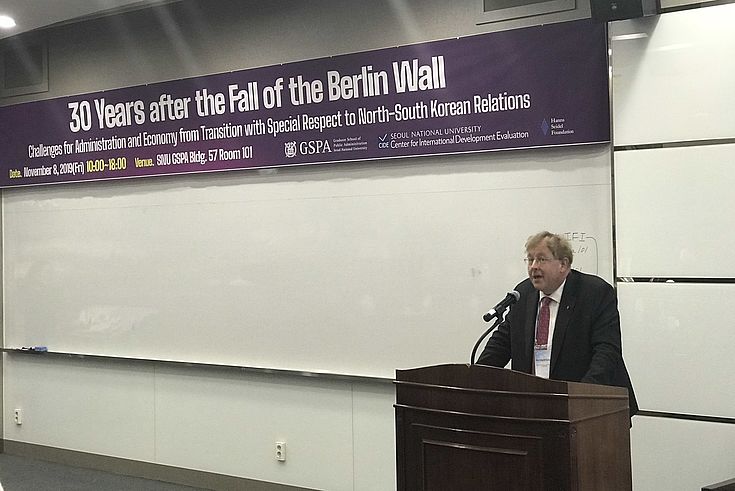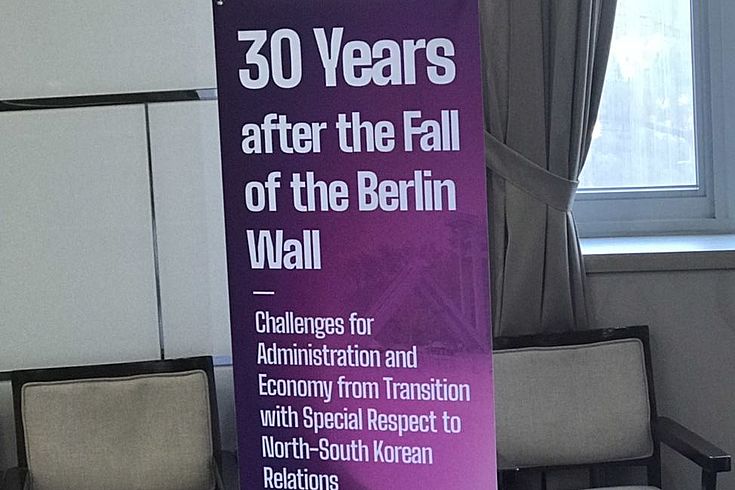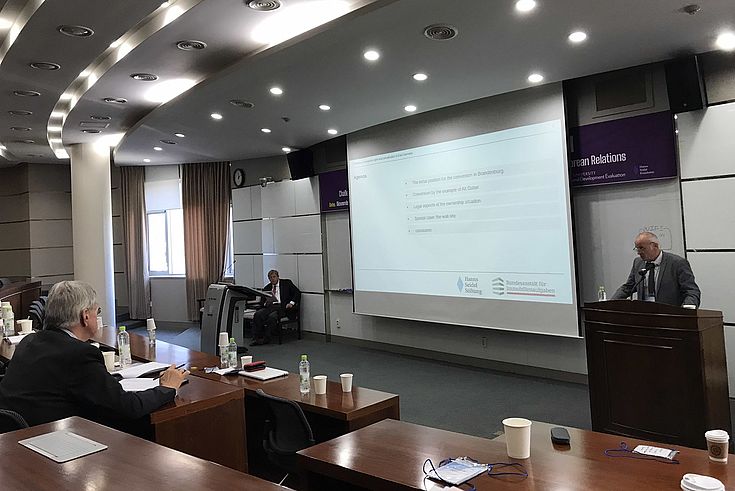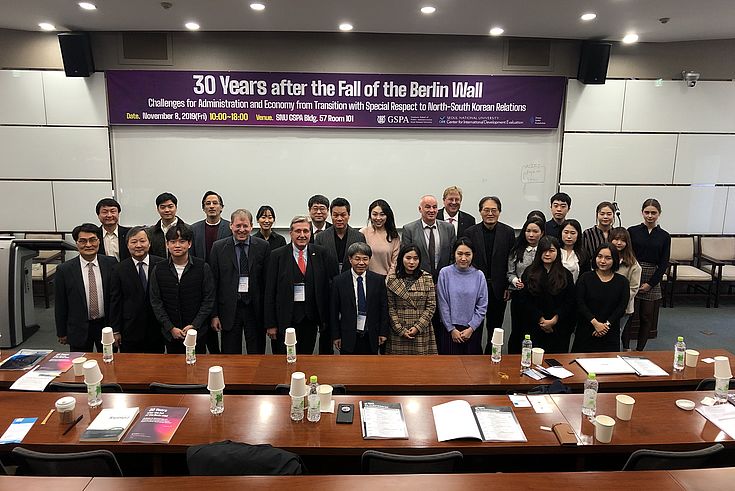Conference
30 Years after the Fall of the Berlin Wall

The Conference was organized and hosted by the Hanns Seidel Foundation Korea, the Graduate School of Public Administration of the Seoul National University (GSPA) and the Seoul National University Center for International Development Evaluation (CIDE).
The Conference consisted of three Sessions and two Keynote speeches, in which the invited experts exchanged their views and experiences with the German Reunification and its’ chances and challenges as well as perspectives on a Korean Reconciliation.
Prof.Dr. Tobin Im, the Dean of the GSPA and Dr. Seliger, the representative of the HSF Korea opened the Conference and thanked everyone for being so involved and interested in the topic.

The first Keynote Speech was held by Prof.Dr. Goerlach. He talked about the topic of “Challenges to the Model of Liberal Democracy in Europe, 30 years after the Fall of the Berlin Wall”. In his speech he mentions the current challenges Germany and Europe has to face, such as the refugee crisis and the recent tendency towards nationalism in Europe. Goerlach is the founder of the debate magazine The European as well as a scholar at a number of international institutions such as the Carnegie Council.
The first Session circled around the topic of the fall of the Berlin Wall and the Administrative Answer to that. Dr. Bernhard Seliger hosted the session and Dr. Reinhold Arnoldi and Prof.Dr. Joerg Michael Dostal presented their speeches. Dr. Arnoldi of the Institute for Federal Real Estate explained the Problems of ownership rights and privatization problems in East Germany by the example of the conversation of military areas in Brandenburg. In that he mainly focused on the current usage of former military properties in East Germany. In his presentation he makes very clear distinctions between the successfully implicated aspects and the not so successful ones. For both he names a number of arguments.
Prof.Dr. Joerg Dostal of the GSPA gave an insight on the political background and the happenings after the second world war instead, which he uses to emphasize the ever-on-going inequality between East and West Germany.

After the lunch break the second Keynote Speech was held by Dr. Christoph Hollenders, the Honorary Consul of Korea in Saxony. He spoke about the German Reunification and the establishment of constitutional structures in Saxony from the viewpoint of someone, who was born in 1952 in West Germany and has lived and worked in Dresden since 1992. He had a very optimistic outlook on Saxonys and East Germany development both in the future as in the past.
The speech was followed by Session Two “Capacity-Building for North Korea and the Prospects for Inter-Korean Administrative Aid”, which was moderated by Prof.Dr. Kwangho Jung of the GSPA. In this one the focus shifted from the German experience to the current situation on the Korean peninsula. For that Dr. Andray Abrahamian of the Corena Connect and Dr. Park Kyun-Seok of the Forest Management Strategic Institute introduced different projects and forms of engagements of inter-Korean communication. Abrahamian mainly focused on humanitarian projects and achievements and Park on environmental projects.

In the last Session “ South Korea and its Development Policy-Capacity Building, ODA and North-South Relations“, which was moderated by Prof. Dr. Suk-won Lee from CIDE and the GSPA, Dr. Aeran Lee and Dr. Shin Jaeeun showed a new perspective on the tense situation on the Korean Peninsula. Dr. Aeran Lee, who lived in the North for a long time and is now a well-known activist in the South, depict the rules of ordinary peoples’ daily life in the DPRK as well as the social and economic developments in recent years. Dr. Shin Jaeeun of CIDE presented her research project regarding the topic of the North Korean social Ideology. In which she evaluated the differences between the two Koreas in the context of the German Reunification. The research project is still in works and was therefore not complete by the time the conference was held.
Prof. Dr. Kwangho Jung closed the conference after a small debate.
The Hanns Seidel Foundation thanks the GSPA and CIDE for their cooperation, as well as the experts and listeners who showed much engagement and interest in the topic.
